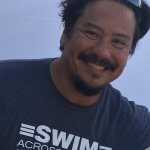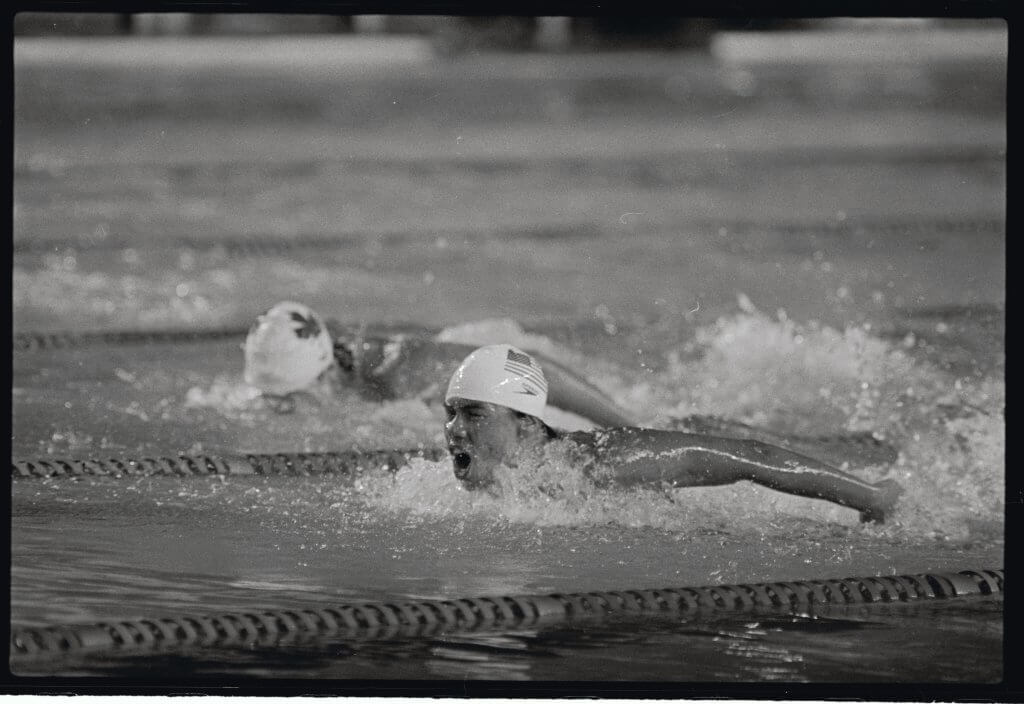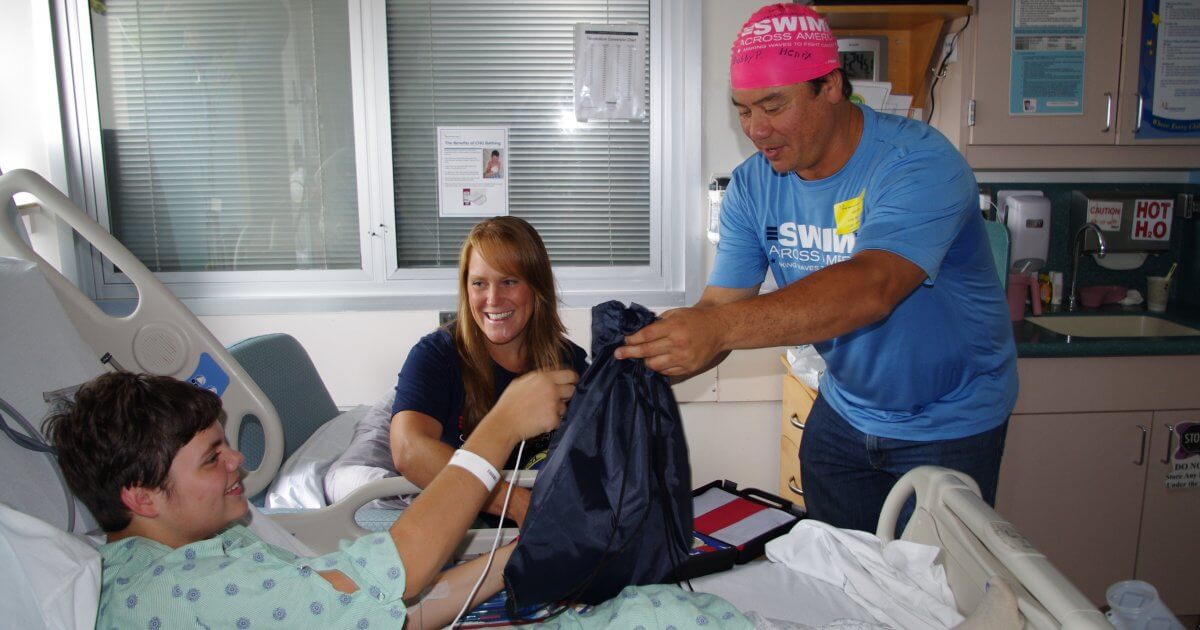After a pandemic-induced year-long delay, Olympic athletes are finally getting their moment. For many of the competitors it might be their one and only shot at gold. Already, some have seen their hopes dashed with positive Covid test results before or even after their arrival in Japan. This is the Olympics in 2021.
Former American competition swimmer Craig Beardsley, now 60, knows all too well that crushing disappointment of a dream dashed. Having qualified for the 1980 team, his quest was ended prematurely by the U.S.'s decision to boycott the Moscow Summer Olympic Games.
Read More
After the boycott, the Soviet Union and other Eastern Bloc countries pushed for new Olympic rule changes limiting each country to only two participants in each swimming event. The United States (which they had much ill will with post boycott) as the dominant swimming power, was hurt the most.
Beardsley retired from swimming and after graduating came home to New Jersey to figure out the next chapter of his life. He was working for his dad and doing some coaching when the founders of Swim Across the Sound's came calling to ask him for his participation in their event to raise money for cancer research.
"It was providence," believes Beardsley. “I was a local guy in the Tri-State area, with a history in the sport, there was a relationship with my mother having had cancer."
Learning to ‘Swim’
The non-profit's inspiring story, from their start as Swim Across the Sound to Swim Across America, is told in a new six-part docu-series WaveMakers, (airing now on the Discovery Life Network and available for streaming on DiscoveryLife.com with your cable subscriber login), that shares the stories of champions who have done so much to help Swim Across America and their “Making Waves to Fight Cancer” cause.
"I'm very grateful. It gave me a purpose," says Beardsley of that call. "When I first started volunteering in 1987, we used to swim across the Long Island Sound."
At first, Beardsley was a volunteer with the organization whose mission is to fund cancer research, clinical trials and patient programs by hosting charity swims while working a day job on Wall Street. But when that "path ended,' he took some time off but continued to volunteer with Swim.
It was then he took on a more formal working role. "On a selfish point, it’s one of the most nourishing things I can do for myself. There's not a day that goes by working at Swim Across America that doesn't remind me of my mom, that in itself is important," says the divorced father of two.
"Having seen what my mom went through, what my dad went through. I don’t want people to have to go through that," says Beardsley, currently the organization's Director of Partnerships.
The Cancer Connection
Beardsley was a teenager in high school when his mother, Jeanne, was first diagnosed with breast cancer. "It was the early/mid '70s, things were still the Wild West. She had a double radical mastectomy."
Even with the surgery and the chemotherapy, Beardsley recalls that he never missed a swim practice or meet, with his mom and dad [Russ] trying hard to shield him and his sister Karen from the worst of it. "They really protected us. They wanted to keep life going on as normally as possible."

That meant relying on friends and other swim team parents to pick up the slack. It was all new to the couple who Beardsley describes as "strong and humble" having grown up with a lot of disruption in their own childhoods, with his mom at one point living in a cave in China taking care of her siblings.
"Even though my parents tried to isolate us and protect us we were very aware," says Beardsley, who remembers feeling scared that his mom might not make it. "In the beginning, I didn’t understand the severity of it. No one really wanted to talk about it. Thankfully, my mom responded well to everything."
As part of her recovery, Beardsley recalls his already fit and trim mom embarking on a vitamin regime and establishing a daily five mile walking routine that she continued for the rest of her life.
After thirty plus years of good health, when Jeanne was in her 70s, she was diagnosed with ureteral cancer. Initially, she tried various therapies and trials. But after a time, says Beardsley, she decided it was time to go out "gracefully" and without pain.
"That was really hard, to think about my dad physically having to honor her wishes of 'It's time for me to go. Let me go home and in peace.' At first it was hard for me to understand that but I get it," he says now.
A Patriotic Pick
Beardsley explains the uncertainty around his mother’s age when she died, which they say is about 76. "We don't really know her real birthdate. She came over from China through Governors Island.” (Jeanne was here earlier as a young child when her grandfather was a Consul General. He was based in Seattle but when the war broke out, they had to return home.)
At Governors Island, she chose her American name and a new birthday. Replying to their request for her birthdate, she answered: 'July 4.' "She was so grateful to be able to come over here and become an American citizen and do the things she didn't have as a child, so she picked July 4, 1945," Beardsley says proudly. "She came over and like most immigrants started with nothing."
Just three years after his mother's death, on Valentine's Day 2007, his dad died in his sleep. "It's interesting because for the longest time he couldn’t process my mom's passing," he explains. “They had such true love. It was karma, really."
About a month before his death, however, he had finally ventured into his wife's sewing room to look through all the things she stored there. "He never went in there," recalls Beardsley.
"He told me 'Craig, you wouldn’t believe all the stuff your mom saved.' It felt like he had made peace. Later when he passed, I felt like he had let go. He was going to join my mom. My dad stuck around to this point to make sure everything was going to be okay with all of us."
For Beardsley, it's obvious in his words and enthusiasm, that his work and engagement with Swim Across America has given him comfort during each of his parents' deaths and turned his lost Olympic swim opportunity into a positive force. "What I accomplished as an athlete is a small part of so many pieces of what is out there," says the Olympian (selected for the 1980 team, they are officially Olympians in the eyes of the United States Olympic Committee).
"I'm very grateful that Swim Across America found me early on and gave me a reason to get back engaged with swimming and made me realize how important it was. When you're done with pro sports, there's a void in your life. This is an opportunity to kind of set goals, to be a part of a community. Everyone needs to be part of a community. The real rock stars are the research scientists, the doctors."
Learn more about SurvivorNet's rigorous medical review process.


